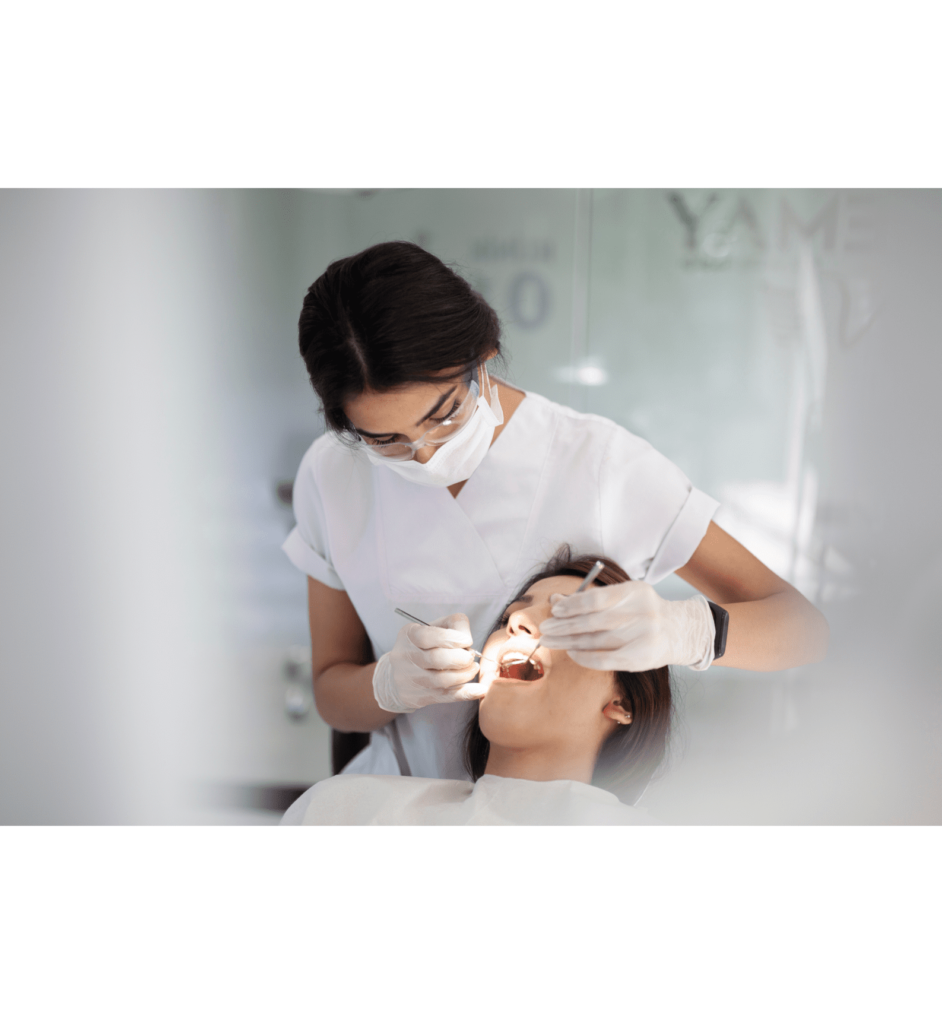Difference Between a Dentist And a Dental Hygienist?
A Dentist vs a Dental Hygienist
| Dentist | Dental Hygienist |
| Diagnose and treat dental issues, perform surgeries, prescribe medications | Clean teeth, take X-rays, educate patients on oral hygiene, apply sealants and fluoride |
| Conduct exams and diagnose conditions | Conduct dental cleanings |
| Focus on overall dental health and complex procedures | Focus on preventive care and maintenance |
| Works independently | Works under the supervision of a dentist |
| A dentist’s professional title is Dr. | While a dental hygienist’s title is RDH (Registered Dental Hygienist) |
Is a Dental Hygienist a Dentist?
No, a dental hygienist is not a dentist. While both dental hygienists and dentists work in the field of oral health, they have distinct roles and educational paths, with dentists having more advanced training and a broader scope of practice.
Can a Dental Hygienist Become a Dentist in the USA?
Yes, a dental hygienist can become a dentist in the USA, by completing the additional education and training. A dental hygienist would need to complete a bachelor’s degree if they haven’t already, and then apply to and attend dental school, which takes four years.
After completing dental school and earning a Doctor of Dental Surgery (DDS) or Doctor of Medicine in Dentistry (DMD) degree, they must pass national and state licensing exams to practice as a dentist. While the process is rigorous and time-consuming, many dental hygienists successfully transition to becoming dentists.

Should I Be a Dentist or Dental Hygienist?
Deciding whether to become a dentist or a dental hygienist depends on your career goals, the amount of education you are willing to pursue, and your desired scope of practice. If you are interested in a broader range of dental procedures like diagnosing and treating dental issues, performing surgeries, and having a higher earning potential, becoming a dentist might be the right choice for you.
On the other hand, if you prefer focusing on preventive care, working directly with patients on routine cleanings and oral hygiene education, and entering the workforce more quickly, becoming a dental hygienist might be more suitable. Just consider your interests, the level of responsibility you want, and the time and financial investment you are willing to make when making your decision.

